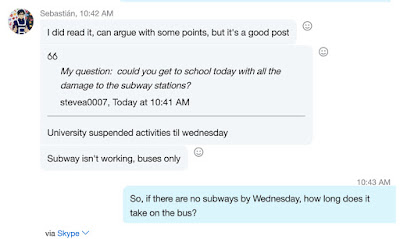This LA Times article offers a Cliff Notes review of President Xi Jinping and China's role in the world. Since Trump has sucked all the oxygen out of the media, we haven't paid enough attention. This article shouldn't take more than ten minutes.
Unlike reading more tweets about Tuesday, you'll finish this feeling like you've learned something important to know.
In China's Shadow: The Rise of Emperor Xi, Prosperity, power and political devotion merge.
There's biography:
"When Xi speaks about his coming of age, he points to Liangjiahe. “Northern Shaanxi gave me a belief. You could say it set the path for the rest of my life,” Xi said in a 2004 interview with the People’s Daily.
He started out lazy and weak in the village, but by the end of seven years, he had experienced hard labor and developed a taste for the pickled vegetables of peasants. It is a folklore reminiscent of Mao’s claims of seeking liberation for the oppressed underclass. But whereas Mao incited grass-roots movements and armed struggle, Xi’s approach to power eschews mass mobilization.
Policy:
“ Xi’s ambitions abroad have been just as grand. He has expanded China’s global power through multibillion-dollar development projects such as the Belt and Road Initiative and by gaining more influence in institutions like the United Nations. He has capitalized on a United States that has turned isolationist under President Trump, dispatching China’s corporations, diplomats and spies everywhere from Nairobi, Kenya, to Brussels in what is becoming a new world order.
Xi often says that this era is one of “great change unseen in a hundred years,” namely that the world’s top superpower is in decline, and that this is China’s moment to rise. “Systemic advantages are a nation’s greatest advantages, and systemic competition is the most fundamental competition between nations,” Xi was recently quoted saying in the People’s Daily.
That determination to prove the Chinese system superior has driven impressive moves toward combating poverty and pollution, making this nation of 1.4 billion people a dominant force in high-tech industries and allowing it to contain the coronavirus outbreak — even as much of the world blames China for allowing the disease to spread.”
"Xi’s militant nationalism has also provoked backlash. The Chinese military has carried out aggressive maneuvers in the South China Sea and rattled Taiwan by sending fighter planes into its airspace. Chinese troops have had deadly clashes in recent months with Indian soldiers along a disputed border. Xi’s reorganized security forces have increased arbitrary detention of foreigners including citizens of the U.S., Canada, Australia, Taiwan, Japan, Hong Kong, Belize, Turkey and Kazakhstan.A recent Pew Research Center survey found that unfavorable views of China have reached historical highs in 14 advanced world economies, with a median of 78% of respondents saying they have “no confidence” in Xi’s handling of world affairs — though the ratings on Trump are even worse.Ironically, a popular nickname for Xi on the Chinese internet is the “ accelerator in chief ,” meaning that his aggressive approach to “stability” has caused more domestic and international conflict and is speeding his government toward self-demise. Criticism has risen even from fellow princelings: Cai Xia, the granddaughter of a revolutionary leader who taught at the central party school for four decades, was recorded calling Xi a “mafia boss” this year.“He has turned 90 million party members into slaves, tools to be used for his personal advantage,” Cai said."
































